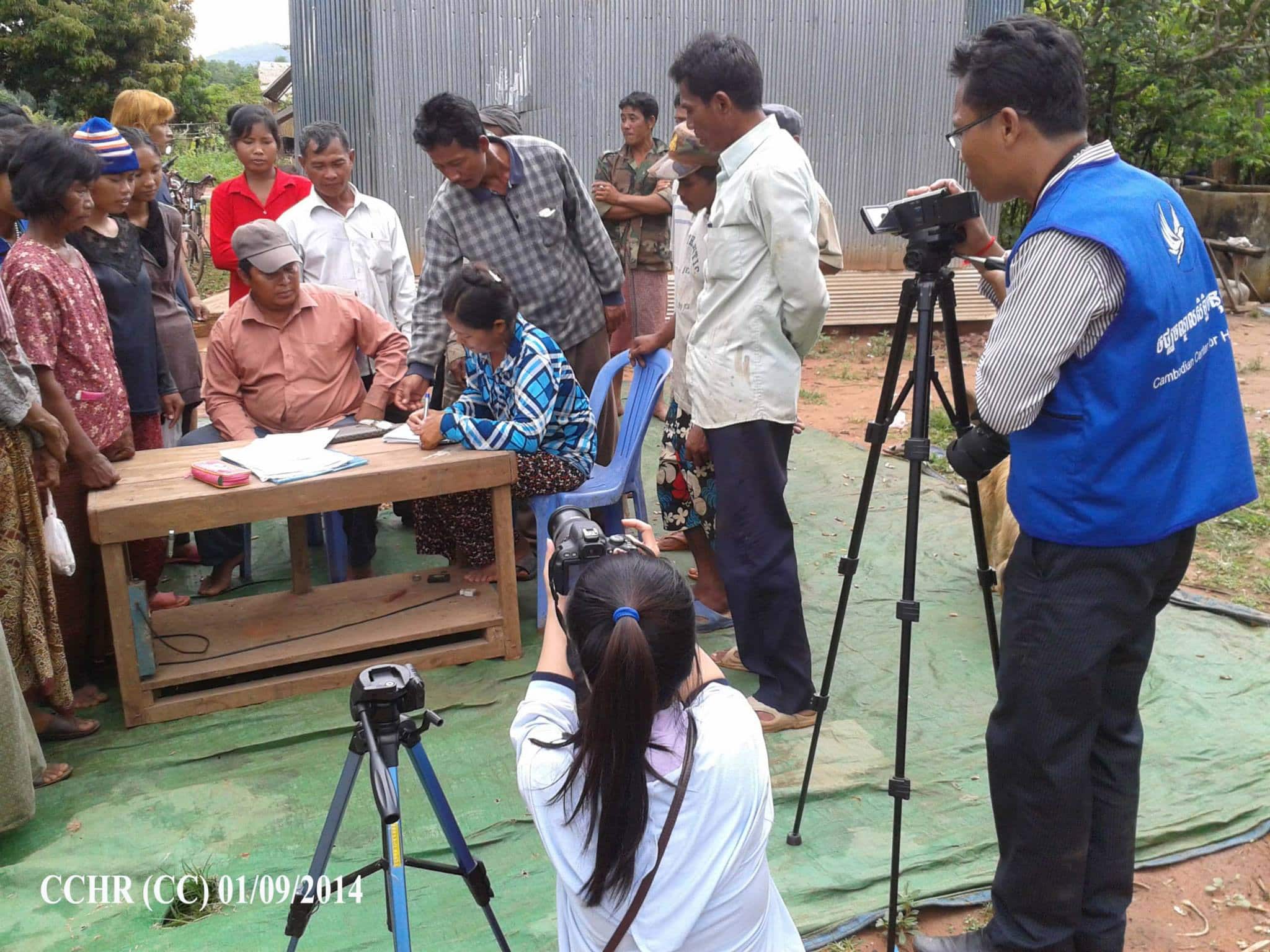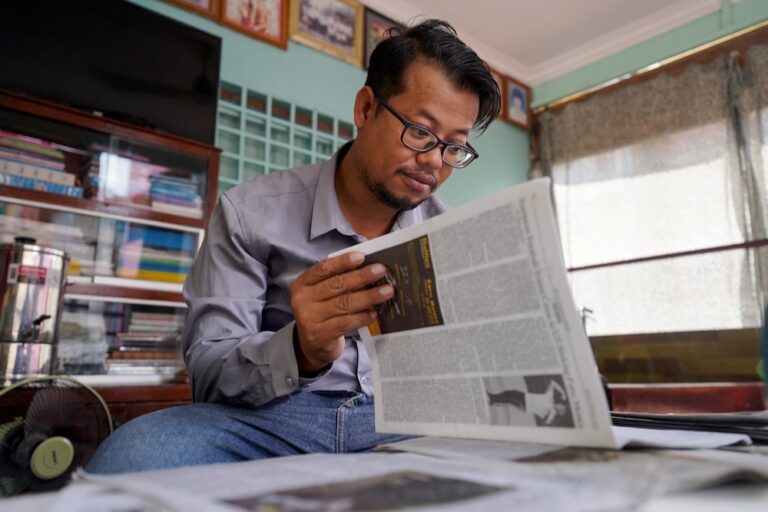As violent crackdowns on freedom of expression have increased in Cambodia over the last year, rights groups and media are disturbed to observe a coinciding increase in impunity for the perpetrators of these crimes.
As violent crackdowns on freedom of expression and press freedom have increased in frequency over the last year, rights groups and media are disturbed to observe a coinciding increase in impunity for the perpetrators of these crimes.
From Mao Sokchan, who was shot dead during a post-election protest in Sept. 2013, to Taing Try, who was murdered as he attempted to report on illegal logging in Kratie on Oct. 12, 2014, journalists and citizens face intimidation, death threats, violence and even murder for claiming their fundamental rights to freedom of expression. Furthermore, they rarely see justice in the Cambodian courts. This culture of impunity cripples the progress of democratic development in Cambodia by stifling free expression and press freedom, without which an informed and engaged citizenry is impossible.
Ahead of the International Day to End Impunity for Crimes Against Journalists on Nov. 2, we, the undersigned organizations, call on the government, media organizations, civil society and development partners to take the following concrete steps towards ending impunity in Cambodia:
- The Ministry of Justice must reopen efficient, thorough and independent investigations into the cases of 13 journalists killed since 1994 and into each of the six protestors and one innocent bystander killed since the 2013 National Elections – none of which have resulted in a conviction. Results of these investigations must be released to the general public, and those identified as responsible for gross human rights violations must be brought before a competent, independent and impartial tribunal, regardless of who they may be. Finding justice for these victims will be a step towards ending impunity and dissuade future violence against journalists and freedom of expression advocates.
- The government must respect its citizens’ fundamental right to freedom of expression and refrain from resorting to excessive use of force.
- The Ministry of Interior and Ministry of National Defense must improve the capacity of Cambodian police and military police to protect citizens’ rights to freedom of the press and free expression.
- The Ministry of Information will prioritize the drafting of an Access to Information Law to ensure reporters and citizens have the right to accurate information and are able to make information requests without facing threats or harassment.
- The National Assembly must amend the Penal Code in order to decriminalize defamation (Article 305) and other points that undermine freedom of expression, including public insult (Article 502), slanderous denunciation (Article 311), and questioning of a judicial decision (Article 523), as these laws are used to shield or justify impunity for those who commit violence against journalists and others. The Constitutional Council must uphold its duty to strike down laws that violate Cambodians’ constitutional right to free expression.
- Media organizations and civil society must sensitize their staff to the dangers that confront journalists and freedom of expression advocates in Cambodia and take proper precautions to guard their safety.
- Development partners should step-up their diplomatic efforts to call for Government action against impunity and the improvement of the justice system in Cambodia.
Moreover, we affirm our commitment to work with the above-mentioned parties, if given the chance, to achieve these goals and to push for an end to impunity in Cambodia.
Groups endorsing this statement:
Cambodian Center for Independent Media
Cambodian Center for Human Rights
Southeast Asian Press Alliance
Diakonia Country Office (Cambodia)
Building Community Voices (BCV)
Cooperation Committee for Cambodia (CCC)
Transparency International Cambodia (TI Cambodia)



